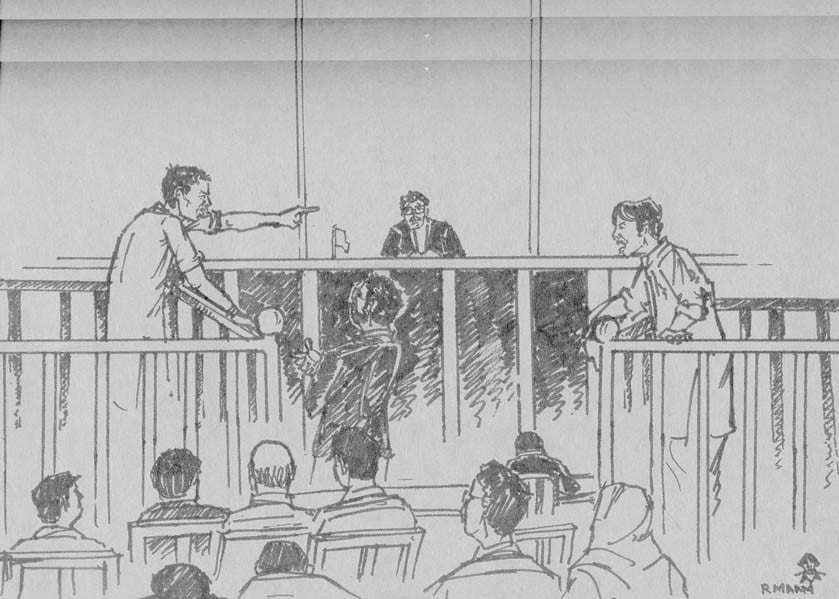
What is right with the police investigations and what is not

Investigation of crimes is faulty because of two reasons: one, the capacity of investigating officers; two, the police itself lack scientific tools and technology that go into carrying out investigations on modern lines.
In the last more than a decade, incidents of terrorism were dealt with by the law enforcement agencies as a matter of priority. Yet, the attitude of the investigating agencies in probing the cases remained unimpressive as they adopted traditional methods to procure evidence. Given the complex investigating procedure being followed in such cases of terrorism, it would be unfair to put all the blame on the police exclusively. A senior official of Rawalpindi Police told TNS that "in all these high profile cases of terrorism, the accused have been arrested and interrogated for more than five months by the intelligence agencies. By the time, the police take over the investigations, most of the evidence is already lost".
In 2016, a trial court judge in Rawalpindi observed the police investigators hardly have the capacity to write correct language, let alone carry out a proper investigation. A senior police officer who heads the CIA on Rawalpindi, Maria Taimoor told TNS that the Police Order 2002 laid down certain educational criteria for the officer investigating the crime, which has improved the quality of investigations being carried out by the police. The new rules for investigating the crime of murder lay down that the police officer must be less than 55 years of age, must be a graduate and must be an officer of financial integrity. However the new police order doesn’t specify any educational qualification for the officer investigating an ordinary crime.
When in 2002, the new Police Order laid down rules for the bifurcation of watch and ward duties of police and investigation departments, senior police officers throughout the country sent only half-literate and untrained among their staff to the investigation department as they knew they would not come under their command. "This includes myself. I was serving as a DPO (District Police Officer) and I too sent half-literate and untrained staff to the investigation department," says former additional Inspector General Sarmad Saeed Khan. "This created a permanent handicap in the investigation departments throughout the country. Even otherwise, honest people in police don’t want to join the investigation department. In one year one investigator on average gets 70 cases to investigate and solve. This is really hectic; secondly they have to spend money from their own pocket which means they have to ask the plaintiffs for financing investigation.
"Police department has very little financial capacity to cover the cost of investigation for the investigating officer. After all the expenditures on salaries, petrol and other expenses, very little is left for the operations of the police," says Khan.
The Police Order 2002 also introduced the concept of cost of investigating a crime, which is aimed at increasing the independence of police officer investigating the crime. For instance, in murder cases the government in Punjab province provides the investigating officer with Rs55,000 to cover the cost of the investigation including transportation of dead body, post mortem and other expenses. However, the cost of investigating ordinary crime is as low as Rs500.
"Forensic and technology have made detection of crime very easy. But the police in Pakistan is not using these techniques in their investigations," says Ilyas Siddique, a senior lawyer practicing criminal law in Rawalpindi and Islamabad,
Taimoor says the use of information technology in crime investigations has been streamlined almost completely. "We are using information technology, which is dependable source of information as evidence. Call data is being increasingly used in the investigation in Punjab".
Basharatullah Khan, senior lawyer practising criminal law in Islamabad and Rawalpindi, says a majority of the crimes taking place in Pakistan are street crimes which don’t require forensic expertise to solve them. "Forensic expertise is only required for murder, rape, kidnapping, dacoity and terrorism".
"Evidence collection is taking place on a scientific basis. However, evidence processing is not within our power. Punjab Forensic Authority (PFA) processes the evidence for us, which sometimes causes inordinate delays in the investigations," says a senior police official who has served both in Rawalpindi and Islamabad.
Read also: "Raise standards of investigations, prosecutions and court adjudications"
Khan says "in 99.9 per cent cases, the police and plaintiff misreport the events of the crime. If one person has shot someone, they will nominate three others in the First Information Report (FIR). The FIR is the basis of investigation under the country’s police system. Misreporting at this stage becomes the basis of faulty investigations at later stages."
Siddique adds that if the FIR is registered immediately after the crime, this reduces the chances of faulty investigations. "Delayed FIRs are often not truthful and are rejected by the court as outcomes of deliberations and distortions".